When it comes to being truly prepared, having a reliable, long-lasting food supply is essential. Dehydrating food is one of the easiest and most effective ways to store food for the long haul. Removing moisture from foods helps them last for months, even years, without the risk of spoilage. Plus, dehydrated foods take up less space and retain a lot of their nutritional value.
Whether you’re building your emergency pantry or just looking to preserve an abundant harvest, these are some of the best foods I recommend dehydrating for long-term storage.
Apples
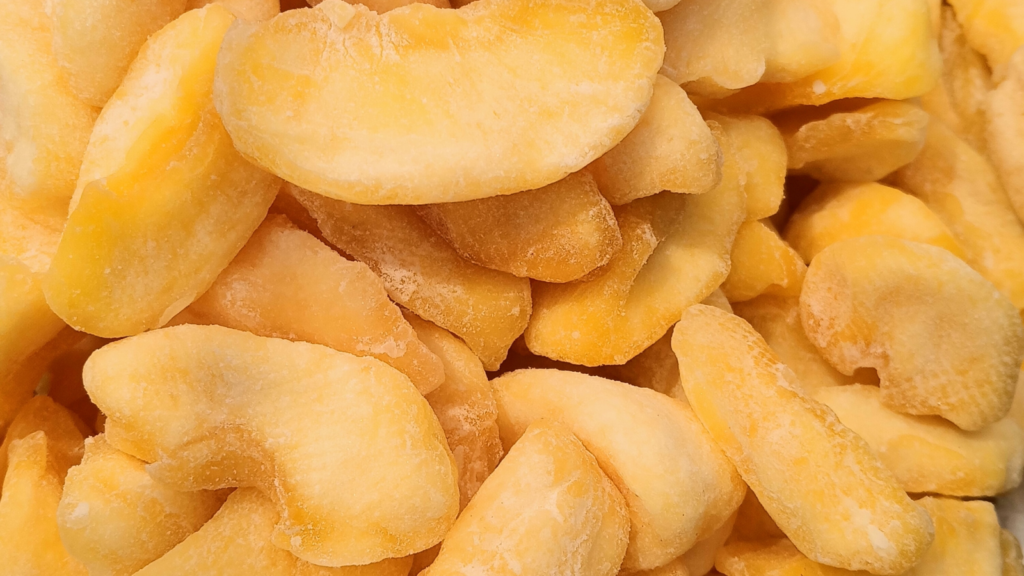
Apples are a fantastic fruit to dehydrate. They’re easy to prep, store well, and make a great snack. Thinly sliced apples dried to a crisp can be eaten as-is or rehydrated for pies, sauces, or oatmeal. I like to soak mine in lemon water before drying to keep them from browning.
Bananas
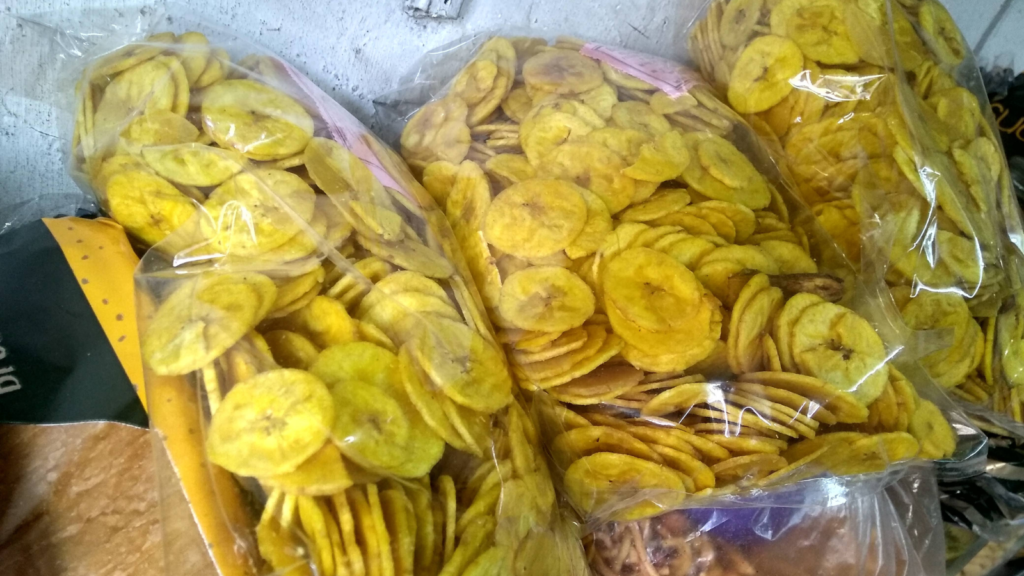
Dehydrated bananas, or banana chips, are a high-energy snack that’s lightweight and stores well. They’re perfect for adding to trail mixes or just eating on their own. They’re a great option to have on hand if you want a quick snack during tough times.
Berries
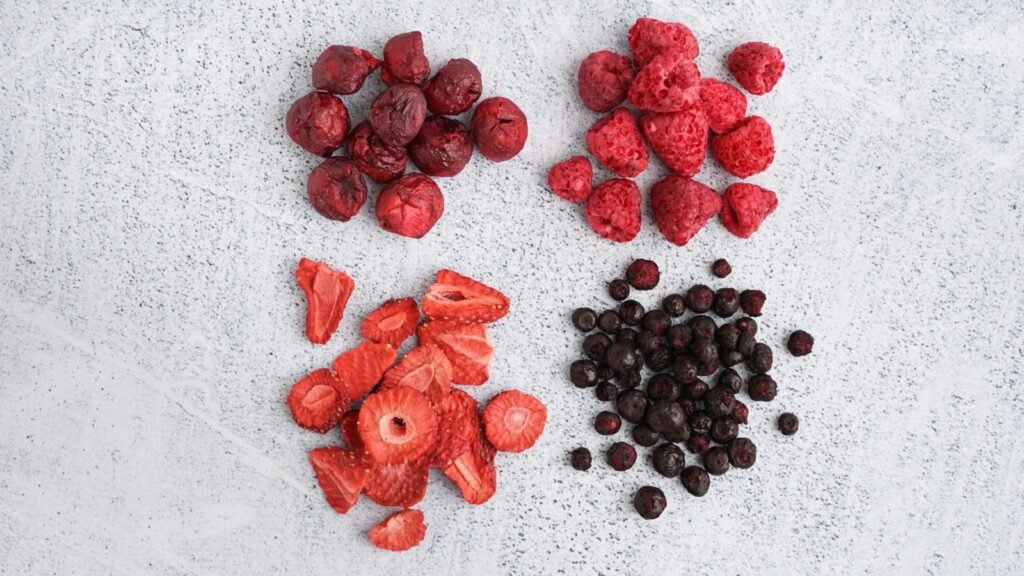
Berries like strawberries, blueberries, and raspberries are easy to dehydrate and full of vitamins and antioxidants. Once dried, they take up very little space and can be tossed into cereals, baked goods, or rehydrated for sauces and desserts. I always keep a stash of dried berries in my storage.
Tomatoes
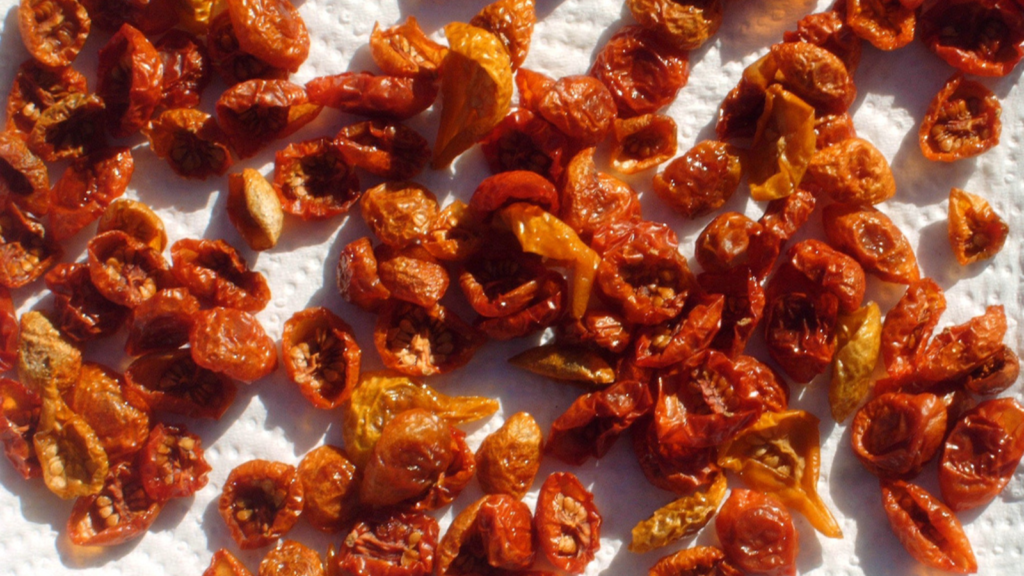
Tomatoes are versatile and perfect for dehydrating. Once dried, they can be added to soups, stews, or sauces to give that rich tomato flavor. I even make my own sun-dried tomatoes, which pack a ton of flavor in a small, easy-to-store package.
Mushrooms
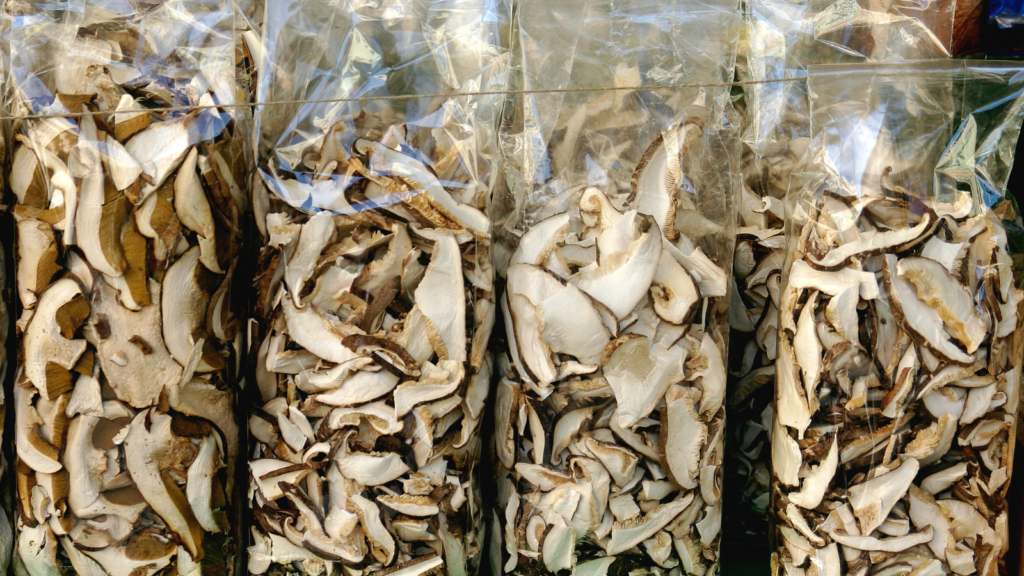
Mushrooms dehydrate well and are easy to rehydrate. They’re a great addition to soups, stews, or casseroles. I like how much space they save once dried, and they keep most of their flavor when you rehydrate them, making them a valuable staple in any prepper’s pantry.
Carrots

Carrots retain much of their crunch and sweetness when dehydrated. They’re perfect for tossing into soups and stews, or they can be ground into powder for adding to sauces or casseroles. They’re a great way to add some essential vitamins to your long-term storage.
Peppers
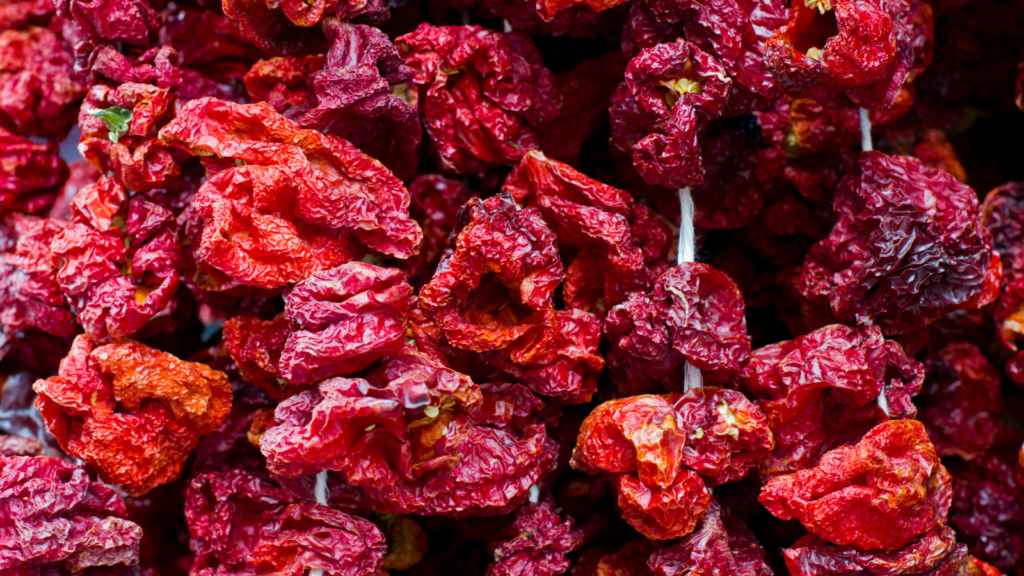
Bell peppers and hot peppers both dry wonderfully. You can toss dehydrated peppers directly into meals or rehydrate them for use in stir-fries, sauces, or soups. They bring a burst of flavor and color, even when fresh produce might be hard to come by.
Onions

Dehydrated onions are lightweight, compact, and retain their flavor. They’re perfect for adding to any savory dish when fresh onions aren’t available. I keep a good amount of dried onions in my stockpile for soups, stews, and casseroles.
Garlic
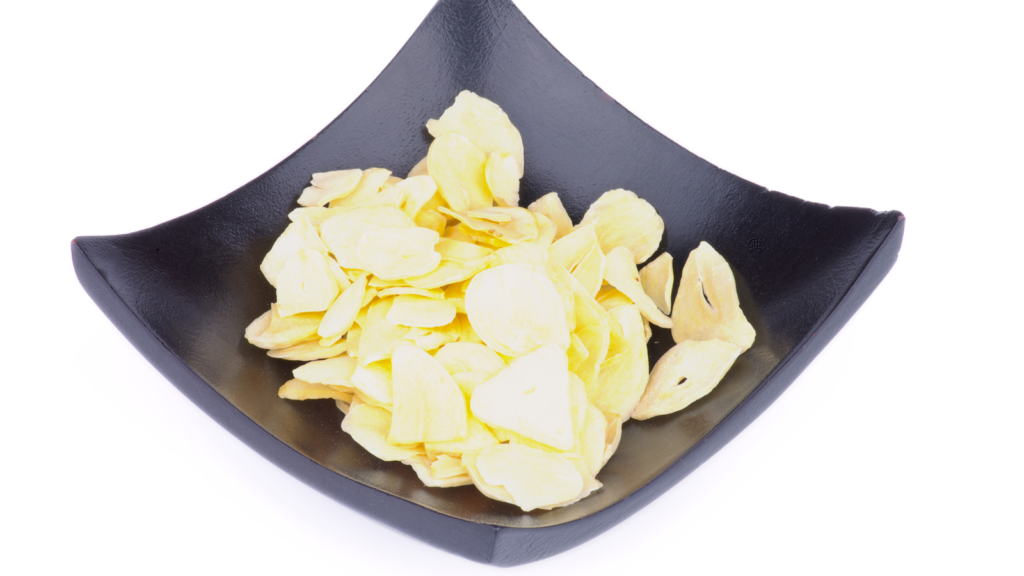
Garlic is a must-have for anyone looking to add flavor and health benefits to their meals. Dehydrated garlic stores well and can be powdered or used as flakes. It’s an essential in my pantry, as it’s useful in virtually every meal.
Zucchini
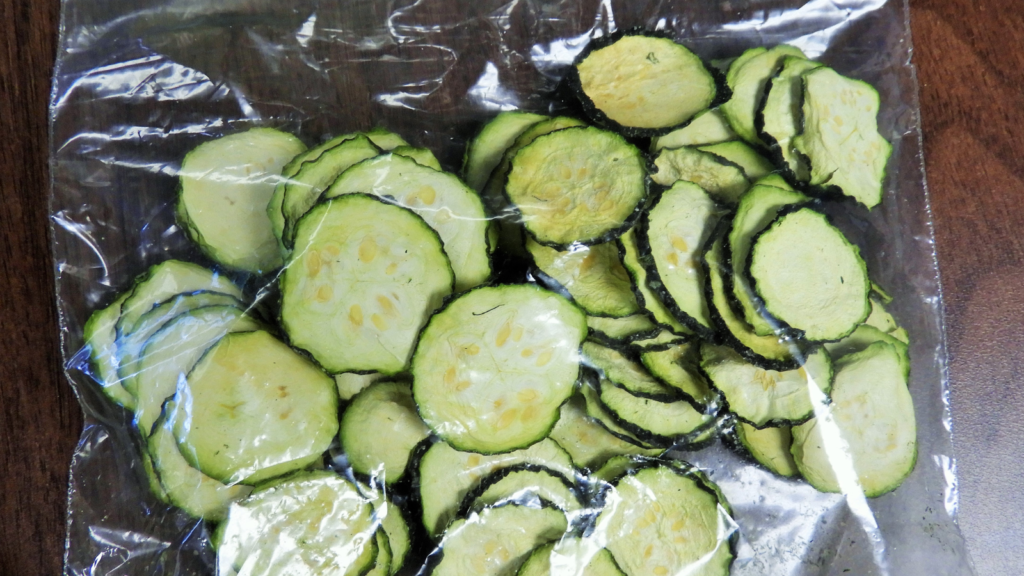
Zucchini is another vegetable that dehydrates beautifully. You can rehydrate zucchini slices for soups or casseroles, or even use them to make low-carb, dehydrated veggie chips. Zucchini is versatile and easy to grow, so it’s a great crop to dry for storage.
Green Beans
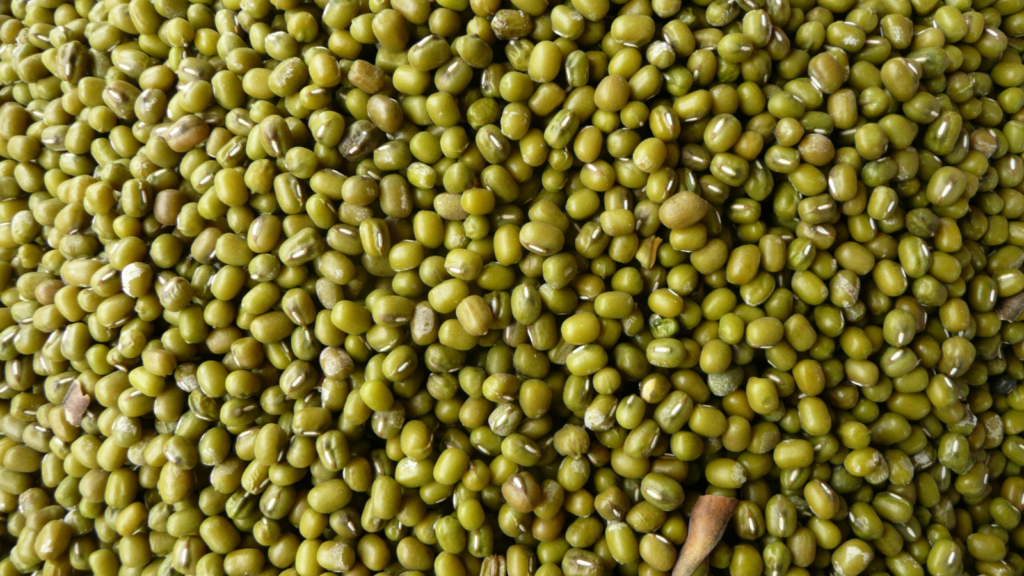
Green beans are quick and easy to dehydrate, and they store well for long periods. Once dried, they can be rehydrated quickly and added to soups, stews, or casseroles. These are a go-to in my emergency pantry for their versatility and nutrition.
Sweet Potatoes
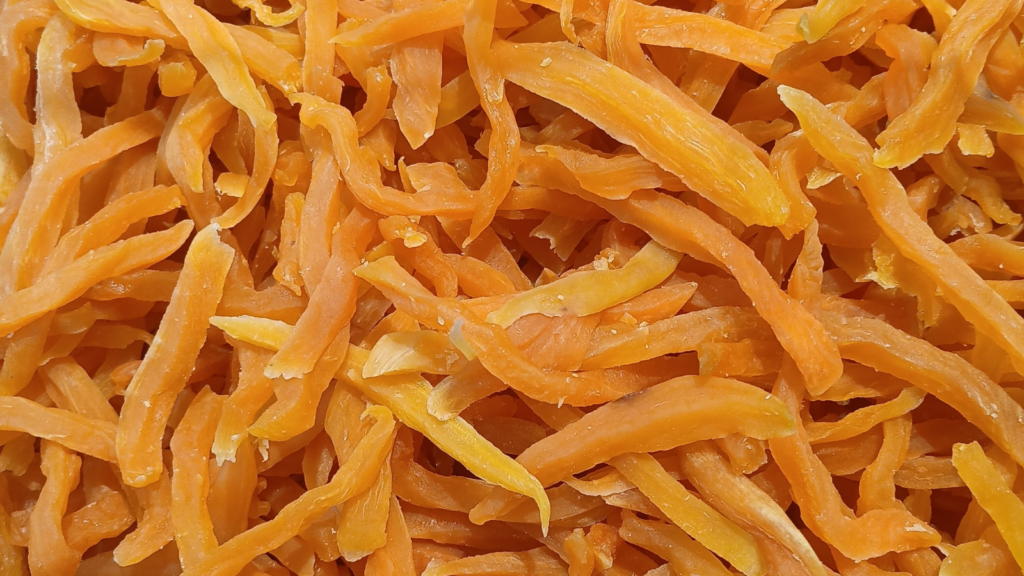
Sweet potatoes dehydrate into sweet, nutritious slices that can be rehydrated for side dishes or soups. You can also mash them before dehydrating to make powder, which is great for thickening stews or adding flavor to casseroles.
Herbs
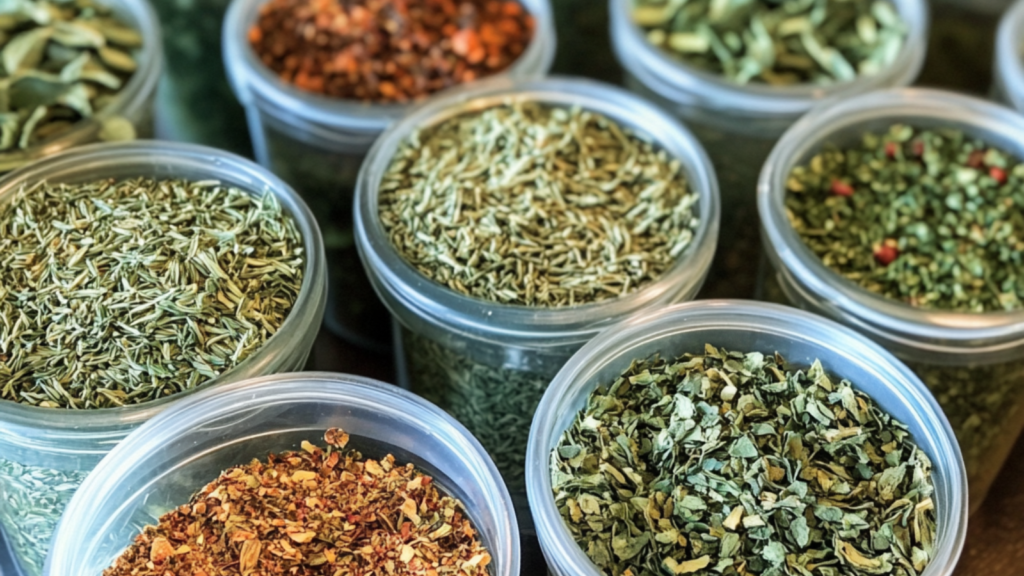
Dried herbs like basil, rosemary, thyme, and parsley are essential for keeping your food flavorful, even in a long-term survival situation. I always keep jars of dried herbs in my pantry, knowing that they’ll help keep my meals enjoyable, even when fresh herbs aren’t available.
Beef Jerky
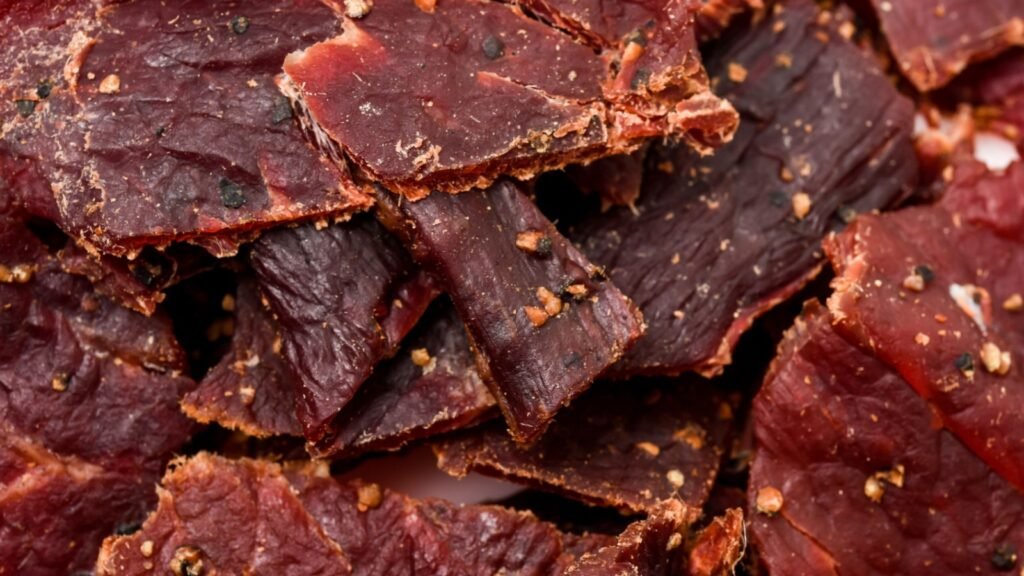
Beef jerky is one of the best sources of long-lasting protein. When properly dehydrated, it can last for months, if not longer, making it a great food to have on hand during emergencies. It’s high in protein and keeps you full, making it ideal for your stockpile.
Cherries
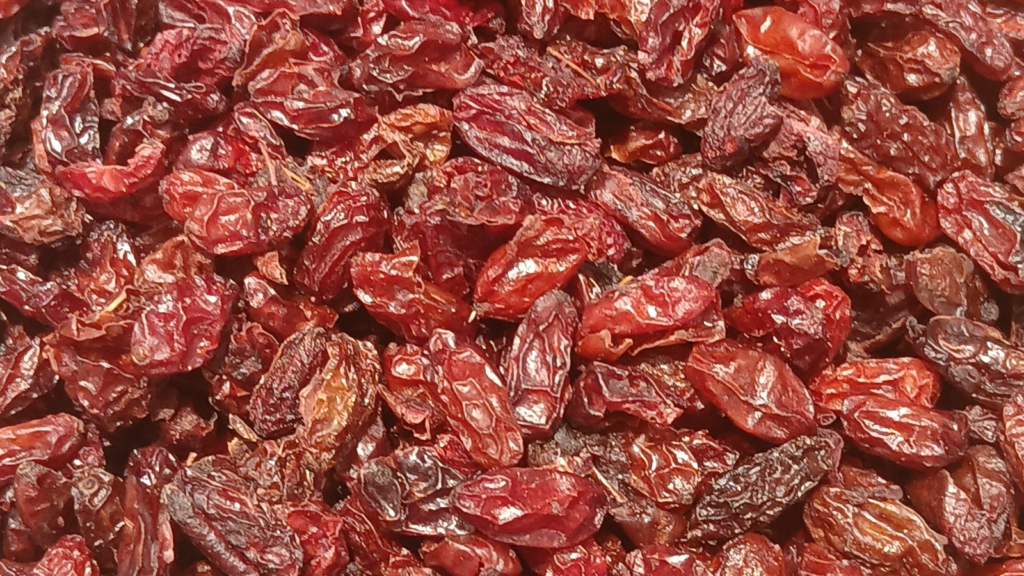
Cherries dry down to sweet, chewy bites that make great snacks or additions to baked goods. They retain much of their flavor and vitamins, so you’ll still get the benefits of the fresh fruit in a compact, shelf-stable form.

